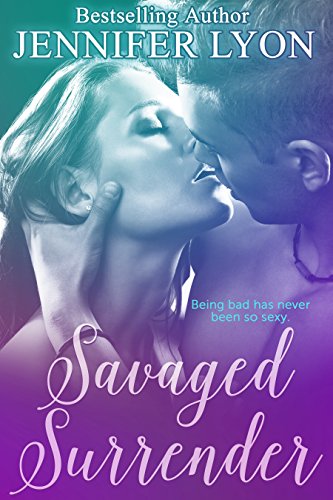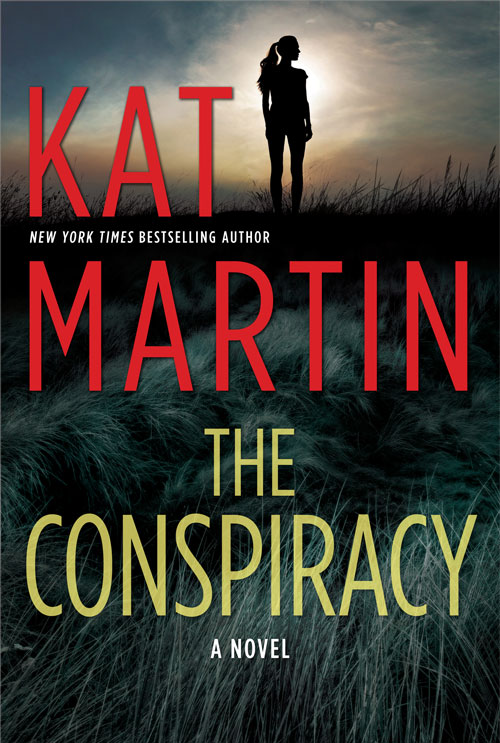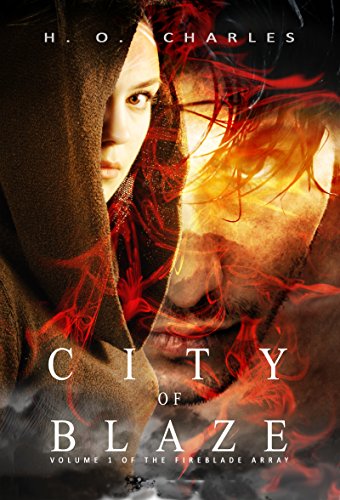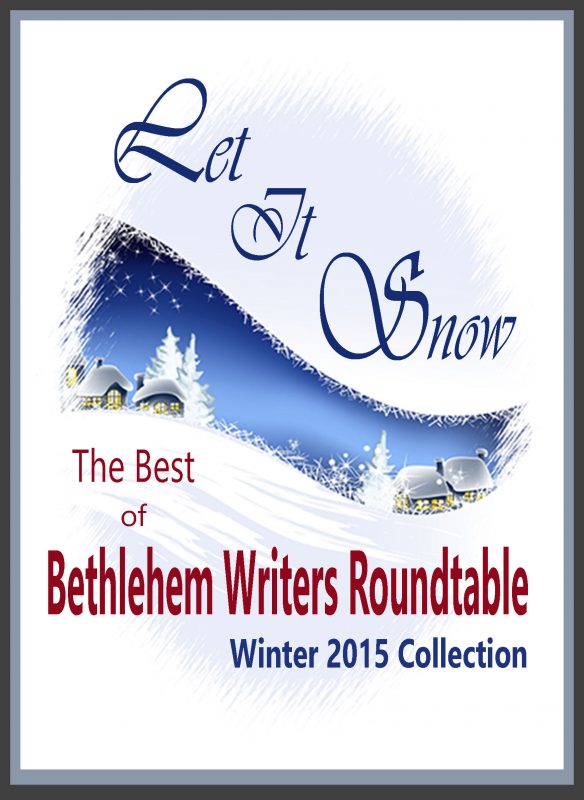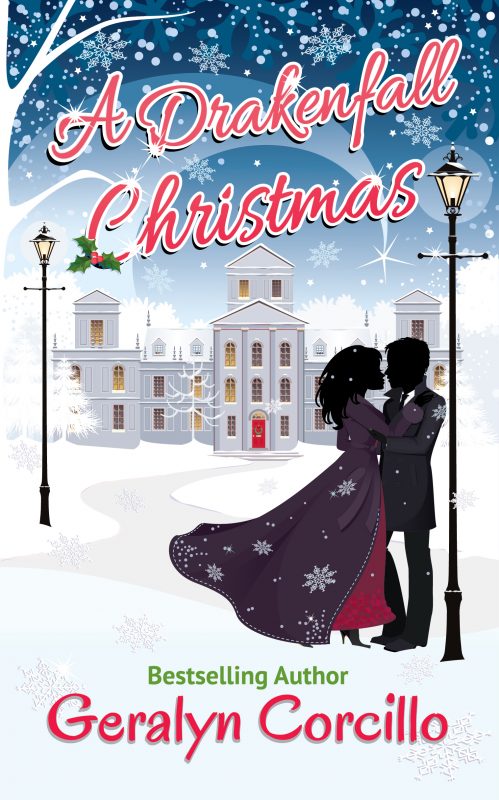Is the F-word a bomb?
October 31, 2019 by The Extra Squeeze in category The Extra Squeeze by The Extra Squeeze Team, Writing tagged as HO Charles, Jenny Jensen, Rebecca Forster., The Extra Squeeze, The F bomb, writing
From The Extra Squeeze Archives
Is the F word a bomb?
We’ve read books with it all over the place and yet notice that readers object to it.
Does anyone really like using it?
Would another word do?
When is it necessary?

Rebecca Forster
USA Today Bestselling author of 35 books, including the Witness series and the new Finn O’Brien series.
Is the F word a bomb?
What kind of fucking question is that?
What kind of friggin’ question is that?
What kind of question is that?
Actually, this is a great question and one I am happy to weigh in on because the use of the F-word had an impact it had on my career.
I began my career as a romance writer (I was fired from this gig because I kept killing characters before they fell in love. My editor suggested a genre change.) I never used the F-word when I wrote romance. When I moved to contemporary women’s fiction I used it sparingly in these longer, more intricately plotted books (the word was only uttered by bad guys).
When I upped the ante and moved into a male dominated genre – legal thrillers – everything changed. Writing became tighter, characters multi-faceted, plots ‘torn from the headlines’ were much grittier. In my writing the F-bomb was spoken by hard charging attorneys and socially marginalized criminals alike to underscore their tenacity for fighting for justice in the former instance or illustrate disdain for the system in the latter.
Hostile Witness* was the first book where I really let loose. Lots of male thriller writers used the word, why not me? My editor at Penguin/Putnam had no problem with it and approved the book. When the Hostile Witness was traditionally published, I received no letters of complaint.
Then came the Internet. I republished the first three books of the Witness Series* and readers started posting reviews as easily as they clicked their Kindle. I remember the first bad review I received because of my use of the F word. It said, “The language in this book is vile. I will never read this author again.”
That stopped me cold, so I went back to the files and searched how many times I had used the F-word. I was shocked and embarrassed by what I found. In my quest to establish myself as a hard-edged thriller writer, I had gone overboard. Using profanity to the degree I had took the reader out of the story at best and offended them at worst. I asked myself, was there a better way to write a scene? A better way to inform a character? Had I been a lazy author and fallen back on a word rather than my skill to get a point across?
The answer to all these questions was yes. Now I use the word friggin’ or cut the word off at Fu — and let the reader’s mind fill in the blank. Bottom line, I took the review to heart, objectively looked at my work and made an informed decision before I re-edited the book. Did I lose anything by banning the F-word?
(F-word deleted) no.
*Hostile Witness is Free to readers.
**Sign up for my mailing list and get Hostile Witness and the Spotlight Novella, Hannah’s Diary, Free.

Jenny Jensen
Developmental editor who has worked for twenty plus years with new and established authors of both fiction and non-fiction, traditional and indie.
The Urban Dictionary defines ‘F-bomb’ as “the strongest weapon in one’s verbal arsenal” (a bit extreme, but it makes the point). Is it necessary to use in fiction? No, not necessary, but sometimes appropriate. The plot, the scene, the character, the action, the tone can all come together to make the F-word the only adjective or expletive that works. In that case, it should be a shocker – a strong, realistic part of the narrative rhythm. The word should be chosen with consideration and, by all the writing gods, don’t overuse it. Repetition strips the word of any value; it just becomes distasteful, silly and embarrassingly adolescent.
It wasn’t long ago a writer would never consider using the word, nor would a publisher let them, although the F word was understood to have the strength of a bomb.
from The Maltese Falcon (Dashiell Hammett, 1930)
The boy spoke two words, the first a short guttural verb, the second ”you”.
“People lose teeth talking like that.” Spade’s voice was still amiable though his face had become wooden.
Great, right!? There are so many options for word smithing around the F-word but that requires thought and skill. Too many authors take the easy way out and use it as verb, adjective and noun. That’s just lazy or the mark of a poor writer.
I recently ran across this Amazon review:
I gave it 5 stars, because the writing, the sense of humor the detective has, and the story! All great! In fact, you are such a good writer, you don’t need to use the “F” word as much as you do! Your characters are great without it!
Such a good writer…you don’t need to use… the reviewer said. That’s exactly what I mean.

Well, a bomb is something designed to explode on impact, so I guess if you want to f-bomb effectively, it needs to be unexpected! In that case, it’ll only detonate properly in the most delicate, sweetest and appeasing of godly novels! But, of course, readers don’t always like to be shocked so hard that they fall off their chairs, and using language that is not in-keeping with the story will only make it jar, in my opinion. As writers, we aim to torture and make our readers emotional from time to time, but there’s intent and then there’s intent.
I don’t mind using swear words – their offensiveness changes over time, and the F-bomb (being polite for you all here), is hardly the most offensive word or phrase out there at the moment. In some novels it’s absolutely appropriate to include swearing, and the target readership will reflect that. I do think over-reliance on a single swear word is a negative thing though. There are so many varied ways of swearing, and it’s up to the author to come up with setting- or character-appropriate vocabulary. In my fantasy novels, I frequently use ‘follocks!‘ (an obvious portmanteau of f**k and boll**ks), because it conveys the emotion I want, but also carries humour and sets the imaginary world apart from this one.
What do you think of using the F-word in fiction? Let us know in the comments.
Ever wonder what industry professionals think about the issues that can really impact our careers? Each month The Extra Squeeze features a fresh topic related to books and publishing.
Amazon mover and shaker Rebecca Forster and her handpicked team of book professionals offer frank responses from the POV of each of their specialties — Writing, Editing, PR/Biz Development, and Cover Design.
Do you have a question for The Extra Squeeze? Contact us here.

Dear Extra Squeeze Team: What Do You Do With Horrible Reviews
July 31, 2019 by The Extra Squeeze in category The Extra Squeeze by The Extra Squeeze Team tagged as horrible reviews, one star reviews, Publishing Questions, reviews, The Extra Squeeze Team
Dear Extra Squeeze Team: What do you do with horrible one-star reviews that were written by someone who clearly didn’t read your book?

Rebecca Forster
USA Today Bestselling author of 35 books, including the Witness series and the new Finn O’Brien series.
Readers are smart and they recognize that review for what it is. I once got a low star review by a woman who wrote, “I haven’t read the book yet.” She was honest, I was not happy, Amazon said it met their standards so that was that. I didn’t spend anymore time thinking about it because there was nothing I could do. Luckily, the next review was a five star. Have a glass of wine. This too shall pass.
Cover designer and author of the fantasy series, The Fireblade Array
There’s not a great deal you can do with these reviews. Some can be flagged and you can ask the retailer to get rid of them, but there must be CLEAR evidence that the reviewer has not read the book and is not reviewing the item for sale. Sometimes retailers will leave the review in place if the company printing or dispatching the book is at fault, even if the book itself is perfectly good. If it’s a single one-star review amongst a sea of kinder reviews, then I would shrug my shoulders and move on. Most readers will have the brains to look through the reviews and decide which ones are reliable. We have to trust them to do that!
If it’s your first and only review, and you know it’s not to do with the content, presentation or delivery of the book, and the review isn’t going anywhere, then I might consider republishing the book. ONLY in those circumstances, however.

Jenny Jensen
Developmental editor who has worked for twenty plus years with new and established authors of both fiction and non-fiction, traditional and indie.
Negative book reviews cut deep. All writers experience it at some time. Writers have to live with it like dancers have to live with blisters. Amazon has help sites where an author can manage reviews. I don’t know of any proactive response an author can make if a poor review shows up on book review sites or newsletters or blogs or anywhere else a rotten review can appear. I get how painful that can be, but one bad review does not sink your career.
The best approach is to learn something from bad reviews. It stings, but consider how the negative reviews measures up to the positive reviews. Compare them for any mention of shared issues. It could be that some readers were captivated with the story even while the manuscript had issue – issues important enough to mention. It could be grammar, characters, plot or just a lack of a good edit. Listen to that and take steps to improve. Hear your readers. It’s their ear you want to woo.
I’m not sure how one can determine that a review was written by someone who hadn’t read the book. People don’t process the same information in the same way. Interpretation is everything. Maybe they just didn’t get it. Maybe they just don’t get anything. I’ve read reviews that left me wondering if the reviewer and I had even read the same book. You know what story you told and if one person didn’t see that then it’s worth a shrug at best, but not a meltdown. Carry on.
And there are those types that cannot pass up a chance to point out errors of any kind. I hope it’s a hobby but it feels like an obsession. You can find letters to the editor on every newspaper site where a reader takes issue with some slip like non-agreement of verb and noun, or a misplaced comma or apostrophe. That misstep is so important to that reader they feel justified in doubting any part of the article.
Those naysayers abound and humor is the best response. There are a number of books where authors have addressed the readers who’ve picked at their work and the best one are really funny. This one is black humor like much of Ruth Rendell: Piranha to Scurfy. Read it for a little happy therapy. Bad reviews are a fact of a writer’s life.
Robin Blakely
PR/Business Development coach for writers and artists; CEO, Creative Center of America; member, Forbes Coaches Council.
You have two choices. You can get over it or you can obsess over it. Both are pretty hard to do. If you go the get-over-it route, you need to sell yourself on the idea that the reader was stupid and mean-spirited, blamed you for something out of your control like a late delivery, or simply didn’t even read the work at all. Any of those could be true, but probably it is even a simpler issue. Your book wasn’t exactly what the reader wanted in the moment. Sometimes, I want to watch Columbo but I end up tuning in to Silence of the Lambs. I would like to blame Amazon Prime for the mistake, but when I do, most people can figure out where the fault really lies. Expect a similar response from others who see your horrible one-star review. If you decide to follow the obsess-over-it route, you can dive deep into the nefarious waters of tracking down the reader and starting a fight about it. Not a great way to go. Energy doesn’t deserve to be wasted on someone who clearly didn’t read your work and gave you a horrible one-star review. Be aware. Watch for legitimate constructive criticism. Let the rest go.
Do you have a publishing question for The Extra Squeeze Team?
Use this form to send them to us.
Dear Extra Squeeze Team: How do I get critiques on my WIP but prevent plagiarism?
June 30, 2019 by The Extra Squeeze in category The Extra Squeeze by The Extra Squeeze Team tagged as copyrights, critiques, HO Charles, Jenny Jensen, Plagiarism, Publishing Questions, Rebecca Forster., Robkin Blakely, The Extra Squeeze, Writing Questions

Dear Extra Squeeze Team: How do I get critiques on my WIP but prevent plagiarism?

Rebecca Forster
USA Today Bestselling author of 35 books, including the Witness series and the new Finn O’Brien series.
In my 30+ year career, I have never worried about plagiarism. Most working authors don’t need to plagiarize your work, they have plenty of their own to worry about. New authors have their own ideas and probably will think they are on a better track with their own ideas. Keep your nose to the grindstone, listen to solid critiques and move forward.

Jenny Jensen
Developmental editor who has worked for twenty plus years with new and established authors of both fiction and non-fiction, traditional and indie.
Jenny is still on vacation time. She be back next month with The Extra Squeeze Team.
Robin Blakely
PR/Business Development coach for writers and artists; CEO, Creative Center of America; member, Forbes Coaches Council.
It is never wrong to take precautions with your work. My best suggestion for preventing plagiarism at the critique stage of the writing process is simple. Don’t share your work with people who have not been vetted in some way to earn your trust. If you doubt the integrity of the people that you are sharing your material with, their opinions about your writing should also be in question. If you have any qualms that your ideas could be stolen by the circle of people you willingly handed your work over to, then tighten your circle. Your work is your business. In any business, great ideas can be at risk of idea theft. Copyrights, trademarks, and non-disclosure agreements all exist to help enforce your rights. Look into those options. But realize that in the critique stage, prevention is a more powerful tool than policing the issue after it happens.
And, on the flip side, protect yourself. Accusations of idea theft or plagiarism is a two-way street. In a critique group, it is important to understand the parameters of collaboration. You may be asking other people to give you their opinions and contribute their ideas to your unfinished piece, but that also has limits that need to be established and clearly understood. It is possible that in a critique setting, your work may be the catalyst for a bigger and better idea than you imagined. If that bigger and better idea comes to light and is identified by someone, it is important to know how to properly handle that situation. It all starts with trusting who is at the table and taking the time to establish and understand the game rules before any of your work is read by anyone.
H.O. Charles
Cover designer and author of the fantasy series, The Fireblade Array
This genuinely is worth considering as ideas get stolen all the time (paranoid, me??). Sometimes plagiarism is not even committed consciously by the perpetrator. We absorb sentences and word structures and ideas all the time as we move through life, so it’s inevitable that we will reproduce bits and pieces of these when we get creative. If you’re sharing your work with a fellow creative, it should be accepted that you are going to influence them at least a little bit. If they churn out whole chunks of an original work or copy an entire plot without acknowledgement, it is quite different.
First, I’d advise using only people you trust to do your first run of read-throughs and critiques. If they’re your friends, they might not be as tough on your work, slightly biased etc., but it’s better than nothing at all. After that, there are copyright registration places if you live in the UK, but they are pointless in my opinion (we do not have a copyright office here – the US does). They won’t act for you legally if someone steals your work, and will take a small fee to register a copy of your work on the date you submit it. But if you have the raw, dated file stored on your computer, then you can just as easily prove you are the owner of the original work anyway. The law is different between the UK and USA, and elsewhere, so it is worth looking into copyright before you share your work with anyone.
The Extra Squeeze Team is Taking Questions
May 31, 2019 by The Extra Squeeze in category The Extra Squeeze by The Extra Squeeze Team tagged as HO Charles, Jenny Jensen, Publishing Questions, Rebecca Forster., Robkin Blakely, The Extra Squeeze, Writing Questions
Taking Questions!
Ever wonder what industry professionals think about the issues that can really impact our careers? Each month The Extra Squeeze features a fresh topic related to books and publishing. Here are some of the questions they have answered in 2017 and 2018. Sensitivity Editors, How Much Reality and Is the F-word a Bomb.
But now they need YOUR questions. Is there a publishing or writing question that you want the answer to, but don’t know who to ask?
Let Amazon mover and shaker Rebecca Forster and her handpicked team of book professionals offer frank responses to your questions from the POV of each of their specialties — Writing, Editing, PR/Biz Development, and Cover Design.
Ask the Extra Squeeze Team a Question

Rebecca Forster
USA Today Bestselling author of 35 books, including the Witness series and the new Finn O’Brien series.

Jenny Jensen
Developmental editor who has worked for twenty plus years with new and established authors of both fiction and non-fiction, traditional and indie.
Robin Blakely
PR/Business Development coach for writers and artists; CEO, Creative Center of America; member, Forbes Coaches Council.
Dear Extra Squeeze Team, What Kind of Editor Do I Need?
April 30, 2019 by The Extra Squeeze in category The Extra Squeeze by The Extra Squeeze Team tagged as Editors, proof reader
Dear Extra Squeeze Team, How do I know what kind of Editor to hire? What’s the difference between a developmental editor, a copy editor and a proof reader? Do I need all three?

USA Today Bestselling author of 35 books, including the Witness series and the new Finn O’Brien series.
In the spirit of full disclosure my fellow Extra Squeeze panel member, Jenny Jensen, is my editor. She has read and edited everything I have ever written.
She is all three rolled into one for me. Other clients will use her to proofread, copy edit and/or for developmental work.
Why do we work well together? Because a) she spends time understanding what my objective is with each book, b) she identifies shortcomings and offers suggestions on how to fix them, and c) she tells it like it is.
The last is very important to me. I don’t want to waste her time or mine, I don’t want praise when it isn’t warranted, I love it when she gives it because it’s deserved.
In my humble opinion, an author might possibly be able to copy edit (fix grammar, unwieldy phrasing, identify plot holes etc.) or proofread their work (missing words, typos) but it is almost impossible for us to properly evaluate the full content of our work.

Do you have a publishing question for The Extra Squeeze Team?
Use this form to send them to us.

Developmental editor who has worked for twenty plus years with new and established authors of both fiction and non-fiction, traditional and indie.
Good question. Answer from an editor: yes, you certainly could need all three, but the last two are critical.
A developmental editor works with an author at the macro level. The aim is to strengthen and/or develop the story. If you’ve hit a roadblock, or are uncertain of any aspect of your story and are looking for constructive feedback, or if working with an experienced fiction editor to bounce ideas is how you work best, use a developmental editor. Often my clients have several plot options in mind and with some energetic back and forth we find their direction.
The developmental process can begin at any stage. I’ve worked with clients who’ve just got a premise, characters sketches. Most have a detailed outline or a completed draft. The developmental editor focuses on plot, conflict, characterization, setting, resolution and narrative flow. A good developmental editor provides educated, useful input. It’s not about telling an author how to write the story. Developmental editing is about stimulating concepts, suggesting solutions and exposing what the writer has been blind to, always respecting an individual author’s voice.
A copy editor’s aim is to improve the writing. This is nuts and bolts editing and is done on an author’s absolute best, final draft—the one the author is confident of. Typos, incorrect grammar, punctuation, convoluted prose, poor word choice, issues with tense—anything that is incorrect or detracts from a smooth narrative flow is corrected. A copy edit is essential for a professional product, a book that stands the best chance to capture and keep readers, especially those who provide the all-critical reviews.
Proof reading is the final, micro level polish and can be done in conjunction with a copy edit. The proof reader catches errors that have been overlooked: there for their, your for you’re, to for too, etc., but also focuses on missing commas, dropped quotation marks, transposed words or letters. The list of possible errors that can slip past eyes that have been intent on story sense is scary. Again, this goes to professionalism. We’ve all read reviews that pan a book for typos. It’s those sorts of errors that can detract so heavily from an otherwise enjoyable read. Whatever else, all books should be proof read before publication. It should be law.
There are many sources to find editors. There’s me—I do all three types and I’ve got a lot of well-pleased clients! Reedsy has many free-lance contacts, as does She Writes. There are professional editor organizations: ACES has a very good list of freelance editors. Do an online search. Ask fellow writers; a personal referral is best. Be cautious of those “Publishers” that offer editorial services. A freelance editor with no vested interested in publishing your work is apt to provide more honest input.
Affiliate Links
A Slice of Orange is an affiliate with some of the booksellers listed on this website, including Barnes & Nobel, Books A Million, iBooks, Kobo, and Smashwords. This means A Slice of Orange may earn a small advertising fee from sales made through the links used on this website. There are reminders of these affiliate links on the pages for individual books.
Search A Slice of Orange
Find a Column
Archives
Featured Books
THE CONSPIRACY
When family ambition turns deadly Chase Garrett must keep Harper safe and both of them alive.
More info →A DRAKENFALL CHRISTMAS
At the English country estate Drakenfall, Christmas is topsy-turvy, romantic, and heartwarming!
More info →Newsletter
Contributing Authors
Search A Slice of Orange
Find a Column
Archives
Authors in the Bookstore
- A. E. Decker
- A. J. Scudiere
- A.J. Sidransky
- Abby Collette
- Alanna Lucus
- Albert Marrin
- Alice Duncan
- Alina K. Field
- Alison Green Myers
- Andi Lawrencovna
- Andrew C Raiford
- Angela Pryce
- Aviva Vaughn
- Barbara Ankrum
- Bethlehem Writers Group, LLC
- Carol L. Wright
- Celeste Barclay
- Christina Alexandra
- Christopher D. Ochs
- Claire Davon
- Claire Naden
- Courtnee Turner Hoyle
- Courtney Annicchiarico
- D. Lieber
- Daniel V. Meier Jr.
- Debra Dixon
- Debra H. Goldstein
- Debra Holland
- Dee Ann Palmer
- Denise M. Colby
- Diane Benefiel
- Diane Sismour
- Dianna Sinovic
- DT Krippene
- E.B. Dawson
- Emilie Dallaire
- Emily Brightwell
- Emily PW Murphy
- Fae Rowen
- Faith L. Justice
- Frances Amati
- Geralyn Corcillo
- Glynnis Campbell
- Greg Jolley
- H. O. Charles
- Jaclyn Roché
- Jacqueline Diamond
- Janet Lynn and Will Zeilinger
- Jeff Baird
- Jenna Barwin
- Jenne Kern
- Jennifer D. Bokal
- Jennifer Lyon
- Jerome W. McFadden
- Jill Piscitello
- Jina Bacarr
- Jo A. Hiestand
- Jodi Bogert
- Jolina Petersheim
- Jonathan Maberry
- Joy Allyson
- Judy Duarte
- Justin Murphy
- Justine Davis
- Kat Martin
- Kidd Wadsworth
- Kitty Bucholtz
- Kristy Tate
- Larry Deibert
- Larry Hamilton
- Laura Drake
- Laurie Stevens
- Leslie Knowles
- Li-Ying Lundquist
- Linda Carroll-Bradd
- Linda Lappin
- Linda McLaughlin
- Linda O. Johnston
- Lisa Preston
- Lolo Paige
- Loran Holt
- Lyssa Kay Adams
- Madeline Ash
- Margarita Engle
- Marguerite Quantaine
- Marianne H. Donley
- Mary Castillo
- Maureen Klovers
- Megan Haskell
- Melanie Waterbury
- Melissa Chambers
- Melodie Winawer
- Meriam Wilhelm
- Mikel J. Wilson
- Mindy Neff
- Monica McCabe
- Nancy Brashear
- Neetu Malik
- Nikki Prince
- Once Upon Anthologies
- Paula Gail Benson
- Penny Reid
- Peter Barbour
- Priscilla Oliveras
- R. H. Kohno
- Rachel Hailey
- Ralph Hieb
- Ramcy Diek
- Ransom Stephens
- Rebecca Forster
- Renae Wrich
- Roxy Matthews
- Ryder Hunte Clancy
- Sally Paradysz
- Simone de Muñoz
- Sophie Barnes
- Susan Squires
- T. D. Fox
- Tara C. Allred
- Tara Lain
- Tari Lynn Jewett
- Terri Osburn
- Tracy Reed
- Vera Jane Cook
- Vicki Crum
- Writing Something Romantic
Affiliate Links
A Slice of Orange is an affiliate with some of the booksellers listed on this website, including Barnes & Nobel, Books A Million, iBooks, Kobo, and Smashwords. This means A Slice of Orange may earn a small advertising fee from sales made through the links used on this website. There are reminders of these affiliate links on the pages for individual books.

